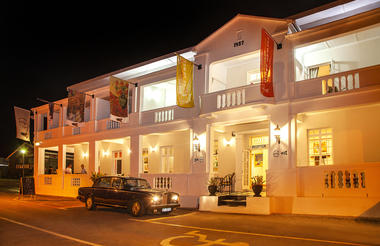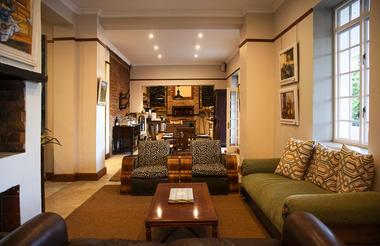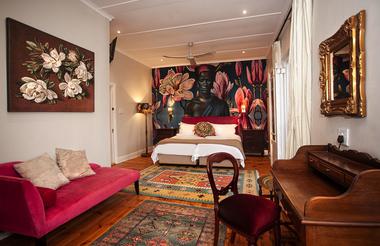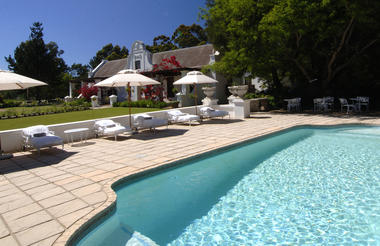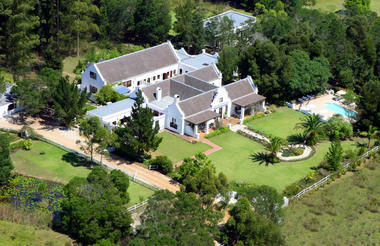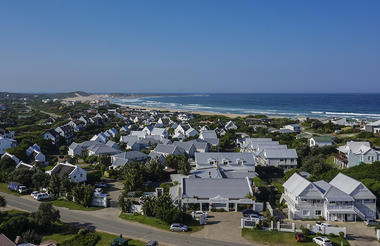Fun, Sun, and Adventure.
Make Every Day an Adventure. Let’s celebrate the thrill of discovery and the joy of new experiences. It’s time to create memories that’ll last a lifetime.
South Africa, a land of unparalleled beauty, diverse cultures, and majestic landscapes, offers an array of experiences that cater to every traveller’s dream.
Customs: Declaring electronic equipment in South Africa.
Travellers arriving in South Africa are advised to declare their electronic equipment, including cameras and laptops, even if they intend to take these items with them upon their departure from South Africa.
Although customs officials may not always enforce this rule for travellers with standard personal electronics, it is best practice to comply, avoiding potential hassles and delays. There is currently no specific value threshold for declaring electronic equipment.
Declaration process
- Online Traveller Declaration System: https://www.sars.gov.za/travellerdeclaration/
- Manual Declaration: Complete the physical Traveller Card (TC01 form) upon arrival at customs.
- Returning home: When departing South Africa, travellers are not required to declare the same equipment again if this was declared upon arrival and proof (online confirmation or stamped TC01 form) has been retained.
- Refundable cash deposits or import duties on goods.
- Ensure your travellers are aware they may need to pay refundable cash deposits or import duties on certain goods brought into South Africa temporarily. Refunds are provided once the goods are shown to have left the country.
- You can access the SARS Traveller Leaflet here which provides essential information on prohibited items, restrictions, duty-free allowances, and other pertinent customs details. You must share this with your clients to review before their travel to South Africa.
Where can I smoke?
The law prohibits smoking in public spaces, including airports and railway stations. Most restaurants and pubs have designated smoking and non-smoking areas. No one under the age of 18 may buy cigarettes or enter a designated smoking area. Both the venue operator and the smoker can face stiff penalties if they ignore the law.
South African time:
South Africa does not change its clocks during the year, and there are no regional variations within the country. South African Standard Time is two hours ahead of Greenwich Mean (or Universal Standard) Time, one hour ahead of Central European Wintertime, and seven hours ahead of the USA's Eastern Standard Wintertime
What to pack
- Comfortable walking shoes and shoes you prefer for evening wear (high heels are not necessary but if you prefer to dress for dinner, feel welcome to)
- Light pants, shorts & three- quarter trousers
- Jeans
- T-Shirts
- A scarf that can be worn over shoulders
- Light waterproof jacket or rain poncho
- Hat and sunglasses
- Swimsuit or spa attire
- Personal toiletries and medication (prescription medicine with a copy of the prescription)
- Sunblock
- Lip salve
- Day pack to carry items you need during the day
- Bug Spray / Mosquito Repellent (Like most places, bugs and mosquitoes like to come out in the evening especially if you are near water) No risk of Malaria.
- Hand Sanitizers
- Suncream
- Small first aid kit
Daytime: (clothes for every season)
- Comfortable activewear and walking shoes.
- Lightweight windbreaker or sweater for added comfort.
Evening Meals:
- March 16: Smart Casual
- March 17: Casual & warm jacket (outside event)
- March 18: Informal & comfortable
- March 19: Dressy Casual
- March 20: Casual and comfortable
- March 21: Game Lodge style (lightweight shirts and long trousers )
Drugs and medication:
If you are on any pharmaceutical drugs, or medication as it is known here, bring them along as well as a spare prescription. Custom regulations allow you to bring in one month’s supply for your personal use. It’s a good idea to get a letter from your doctor, confirming your medication. Drugstores are known as “pharmacies” here.
Travel Essentials
- Passport.
- Identification document.
- Air ticket.
- Copies of travel documents (in case anything goes missing)
- Comprehensive Travel Insurance.
- Phone chargers.
- Power bank.
- Headphones.
- Travel pillow.
- Travel adapters.
- Camera.
The standard electrical voltage in Cape Town is 220/230V, 50hz and most often an M plug type. Most electrical sockets take a type D round 3-pin plug. If you are travelling from a country with different style plugs, make sure you purchase and pack a suitable travel adapter (not many universal adaptors DO NOT cover Africa!).
General
Temperature
The average temperature during the day is around 18C to 32C and at night the temperature drops to around 10C. It is advisable to pack a combination of light and warm clothing to be prepared for the fluctuating temperatures and the possibility of rain.
Time Zone
South African Standard Time: 2 hours ahead of UTC (Coordinated Universal Time), formerly known as GMT (Greenwich Mean Time).Electricity
220/ 230-volt AC, at 50 cycles a second. The plug outlets are 15 amps, 3 pins (round).
Languages
Although there are 12 official languages spoken in South Africa (Afrikaans, English, Zulu, Xhosa, Swazi, Ndebele, Southern Sotho, Northern Sotho, Tsonga, Tswana, and Venda), English is widely spoken.
Money Matters
The currency of South Africa is the Rand, commonly abbreviated to R, officially ZAR. R 1 = 100 cents.
Denominations:
Notes - R 10, R 20, R 50, R 100, R 200.
Coins - 5 cents, 10 cent, 20 cent, 50 cent, R 1, R 2, R 5.
The major Credit Cards (Visa, Mastercard, Diners, American Express), are widely accepted. Value Added Tax (VAT) is charged, at a current rate of 15%. International visitors can claim VAT back at the Airport, upon departure, on items being taken out of the country. Items must have a value of more than R250-00, and you have to have the original receipt/ invoice of purchase.
**What is load shedding?
As South Africa’s primary electricity supplier, Eskom’s mandate is to ensure the security of supply to service. At all times there must be sufficient supply to meet demand.
Eskom faces the challenge of a constrained power system that will affect South Africa until substantial new power capacity is available. In the meantime, to meet demand, older power stations and infrastructure are being used to full capacity.
Load shedding, or load reduction, is done countrywide as a controlled option to respond to unplanned events to protect the electricity power system from a total blackout. This is done through various stages of load shedding.
While we generally use the word blackout loosely to mean “no lights” in our local area, a country-wide blackout has much more serious consequences, which can occur when there is too much demand and too little supply, bringing the power system into an imbalance – tripping the power system in its entirety.
Why is South Africa experiencing load shedding?
Load shedding is related to inadequate national energy supply to meet demand. This is mainly due to a large amount of unplanned maintenance required at Eskom’s ageing coal-fired power stations. In addition, the new energy generation units at Medupi and Kusile have faced challenges in bringing the units online.
Load Shedding Tips for Travellers
Load shedding may be inconvenient, but you could minimise this by being prepared and staying positive and patient. With a bit of luck, you will only be minimally affected, or not at all.
- Plan accordingly.
- Make sure that your phone and camera are fully charged before the power cuts.
- The hotel or lodge will have provided extra emergency lighting in your rooms, but it will be darker than normal so we also recommend bringing a head torch so that you can have both hands free. Why not keep your phone (with its ‘torch’ app) close to your bed?
- Exercise patience
- The reality is that nothing works quite as it should when there is a power cut. Therefore, your room may not be ready at the usual check-in time because there was a power cut when they were due to clean the room.
- The good news is that you are on holiday. The hotel swimming pool doesn’t need power, nor does a walk on the beach or a scenic drive over a mountain pass.
- Elevators
- Please note that most generators do NOT power lifts or elevators in hotels so make a habit of using the stairs.
- Stay charged.
- Whenever possible, ensure that your devices are charged fully. Plug them in overnight, charge your power banks when you can and ensure you have a car charger for those long road trips.
Phoning into South Africa
Suppose you're dialling a number in South Africa from outside the country. In that case, it must be preceded by +27, South Africa's international country code (the + sign represents the international access code for the country you're calling from) and either:
- the area code of the city or town in South Africa you're calling (leaving out the first zero), if you're calling a landline; or
- the mobile network code (leaving out the first zero) if you're calling a cellular/mobile network.
So, for example, to phone South African Airways' call centre from abroad, you'd dial +27 11 978 5313 (Johannesburg's area code is 011, but if you're phoning from abroad, you drop the zero).
To call a mobile number, you might start dialling +27 82 … (082 is the code for one of our main mobile networks, but if you're phoning from abroad, you drop the zero).
Phoning out of South Africa :
To make an international call from South Africa, dial 00, followed by the country code of the country you wish to call, followed by the relevant area code (if there is one), followed by the phone number.
E Sim
eSIM is designed to seamlessly support both inbound and outbound journeys. We highly recommend that you consider this option as if offers a convenient connectivity solution.
|
B&B: Bed and Breakfast |
D,B&B: Dinner, Bed and Breakfast |
|
FB+: Full Board Plus - Dinner, Bed, Breakfast, Lunch and Activities |
|
Fast Facts
Includes
Excludes
Fast Facts
7 Days / 6 Nights
Group Size: 13 guests
Reference Number: Fam Tip

Includes
- Accommodation
- Transportation
- FB including limited drinks at meal times (Table wine, local beers/ciders, soft drinks and water)
- Activities unless specified (weather dependant)
- Domestic air ticket from Port Elizabeth - Cape Town
- International air ticket
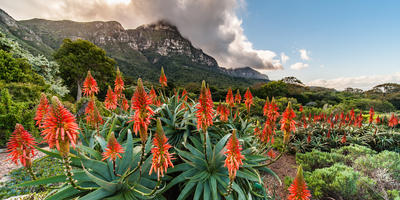
Excludes
Gratuity for tour guide, coach driver, game range, tracker and lodge staff
The suggested total gratuity is EUR50 per person (at your discretion)
- Personal comprehensive insurance
- Items of a personal nature









